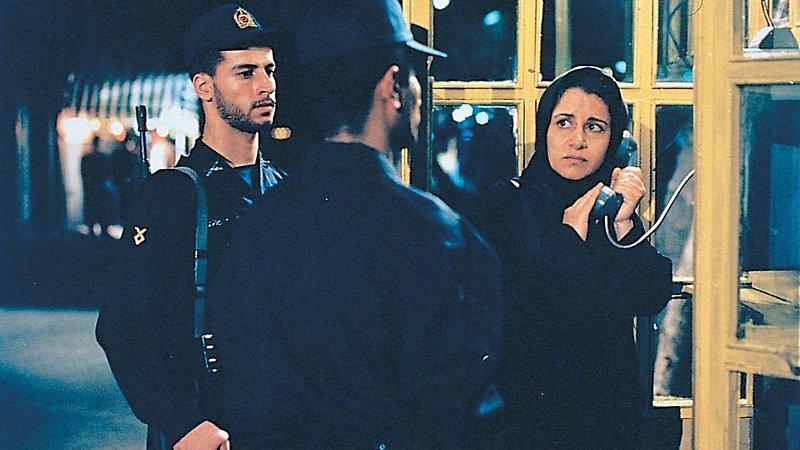
Screened as part of NZIFF 2001
The Circle 2000
Dayereh
One of the year’s most transfixing movie experiences, The Circle glowers with the ferocity of repressed anger. Panahi, director of the altogether gentler White Balloon, utilises a relay structure, evoking, rather than telling a chain of stories that are connected more by intuition and theme than by transaction.
He begins in a maternity suite where the birth of a daughter spells divorce for the son-less mother. From here the camera shifts out to the street where three women are nervously using a payphone. They are prisoners on a temporary release and need money to make a more permanent escape. The skittish teenager Nargess and the older, calmer Arezou flee as their companion is accosted by the omnipresent police. They are agitated, panicked and constantly ducking behind parked cars or down alleyways, swirling their long black chadors over their heads. The relay continues through a pregnant widow desperately seeking an illegal abortion, a mother forced to abandon her child in desperation and a prostitute who is carted away to prison.
Though every one of them is oppressed, these women each possess a tenacity, almost feral, that is daunting and thrilling. With a cast of non-actors (only the distraught mother is played by a professional actress) Panahi immerses us in an underworld of outlaw women, an inchoate subculture at the mercy of an indifferent patriarchy which we barely glimpse. The film is banned in Iran. — BG
Panahi is a consummate urban filmmaker. As in his previous films, his protagonists must navigate the clamorous labyrinth of Tehran. He's also a confident stylist whose intimate, quasi-documentary films are predicated on long takes, a moving camera, and extended wordless passages. (There is no unmotivated music, and the movie has as much ambient sound as it does dialogue.) The few establishing shots and absence of transitions contribute to the strong sense of individual melodrama and isolation… Whatever its political significance, this is a dark, sustained, and wrenching film. — J. Hoberman, Village Voice, 9/4/01